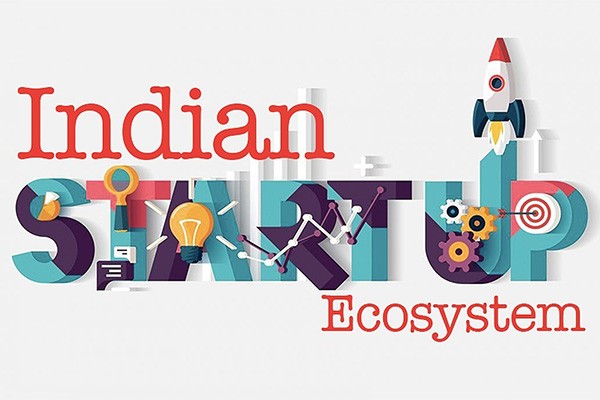India’s Thriving Startup Ecosystem: A Decade of Growth

India has emerged as a powerhouse in the global startup landscape, now ranking as the third-largest startup ecosystem in the world. As of December 31, 2024, the country has issued over 1.57 lakh certificates for startup recognition through the Department for Promotion of Industry and Internal Trade (DPIIT). This remarkable growth has been fueled by the rise of more than 100 unicorns, which are privately held startups valued at over $1 billion. Major cities like Bengaluru, Hyderabad, Mumbai, and Delhi-NCR have led this transformation, but the momentum is also strong in Tier II and III cities, which account for over 51% of new startups. The Indian government has played a crucial role in this evolution through initiatives like Startup India, which aims to empower and support the next generation of entrepreneurs. This article explores the key initiatives and their impact on job creation and innovation in India.
Key Schemes and Initiatives for Startups
Startup India
Launched on January 16, 2016, Startup India is a flagship initiative by the Government of India aimed at fostering innovation and creating a vibrant startup ecosystem. The primary goal of this initiative is to drive economic growth and generate large-scale employment opportunities. By providing support to startups at various stages of their growth journey, Startup India encourages innovation and design. The initiative includes various schemes designed to empower startups to scale and succeed.
Since its inception, the number of DPIIT-recognized startups has skyrocketed from around 502 in 2016 to an impressive 1,57,706 by the end of 2024. This growth has translated into significant job creation, with startups generating over 17.28 lakh direct jobs. The IT Services sector leads this job creation, followed by Healthcare and Lifesciences, and Professional and Commercial Services. Additionally, the initiative has empowered women entrepreneurs, with 75,935 recognized startups having at least one woman director. The government has also simplified compliance processes and offered tax exemptions for three years, making it easier for startups to operate and thrive.
Startup India Seed Fund Scheme (SISFS)
The Startup India Seed Fund Scheme (SISFS) was launched in 2021 with a corpus of ₹945 crore. This scheme is designed to support startups at various stages, including proof of concept, prototype development, product trials, market entry, and commercialization. The SISFS has been operational since April 1, 2021, and is overseen by an Experts Advisory Committee (EAC), which evaluates and selects incubators for fund allocation.
As of December 2024, 213 incubators have been approved under the SISFS, benefiting a total of 2,622 startups with ₹467.75 crore in funding. This financial support has been crucial for many startups, allowing them to develop their products and enter the market more effectively. The SISFS exemplifies the government’s commitment to nurturing innovation and entrepreneurship, providing essential resources to help startups succeed in a competitive landscape.
Fund of Funds for Startups (FFS) Scheme
The Fund of Funds for Startups (FFS) Scheme was launched in June 2016 with a substantial corpus of ₹10,000 crore. The primary aim of the FFS is to enhance access to domestic capital for startups. Managed by the Small Industries Development Bank of India (SIDBI), the fund invests in SEBI-registered Alternative Investment Funds (AIFs), which in turn invest in startups through equity and equity-linked instruments.
By the end of 2024, ₹6,886 crore had been committed by DPIIT to SIDBI, while ₹11,687 crore was committed by SIDBI to AIFs under the FFS scheme. This commitment has catalyzed investments of ₹21,276 crore in 1,173 startups, significantly boosting the startup ecosystem. The FFS has played a vital role in ensuring that startups have access to the necessary funding to grow and innovate, further solidifying India’s position as a global startup hub.
Credit Guarantee Scheme for Startups (CGSS)
The Credit Guarantee Scheme for Startups (CGSS) aims to provide credit guarantees for loans to DPIIT-recognized startups from Scheduled Commercial Banks, Non-Banking Financial Companies (NBFCs), and Venture Debt Funds. Implemented by the National Credit Guarantee Trustee Company Limited (NCGTC), the CGSS offers credit guarantees up to a specified limit, easing access to funding for startups.
As of January 3, 2025, the scheme has guaranteed 260 loans worth ₹604.16 crore to 209 startups. Among these, ₹27.04 crore has been allocated to 17 women-led startups, showcasing the government’s commitment to promoting gender diversity in entrepreneurship. The CGSS has been instrumental in reducing the financial barriers that many startups face, enabling them to secure the funding they need to grow and succeed.
Over the past decade, India’s startup ecosystem has witnessed remarkable growth, establishing itself as the third-largest in the world. Initiatives like Startup India, SISFS, CGSS, and FFS have played a pivotal role in fostering innovation, creating jobs, and supporting entrepreneurs. This dynamic collaboration among various stakeholders has strengthened the ecosystem, driving economic growth and empowering the next generation of innovators. Looking ahead, India’s startup landscape is poised to reach even greater milestones, continuing to redefine the future of entrepreneurship in the country.
Observer Voice is the one stop site for National, International news, Sports, Editor’s Choice, Art/culture contents, Quotes and much more. We also cover historical contents. Historical contents includes World History, Indian History, and what happened today. The website also covers Entertainment across the India and World.

